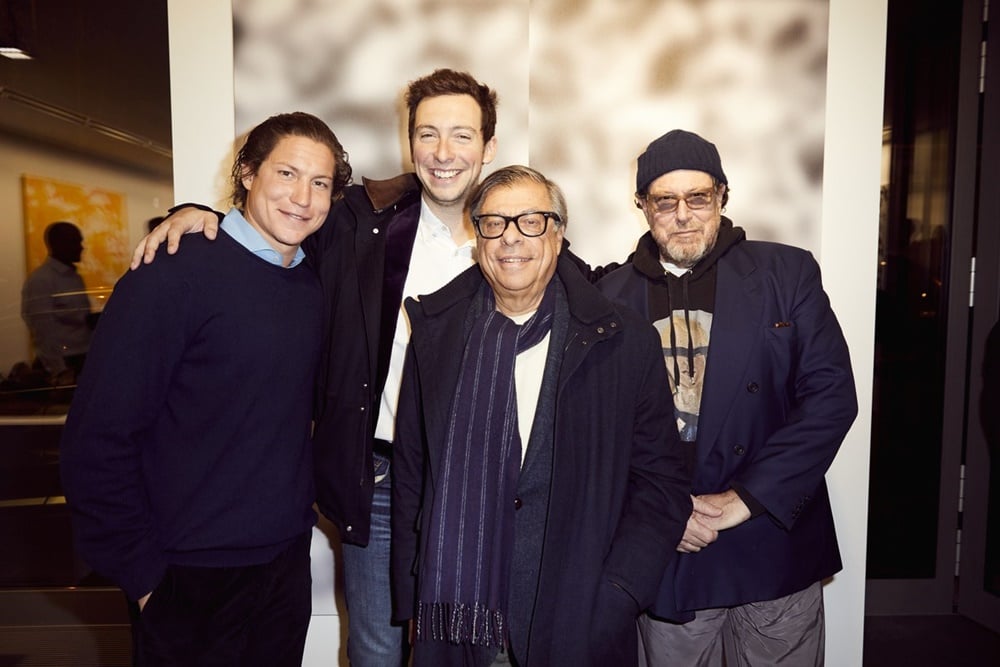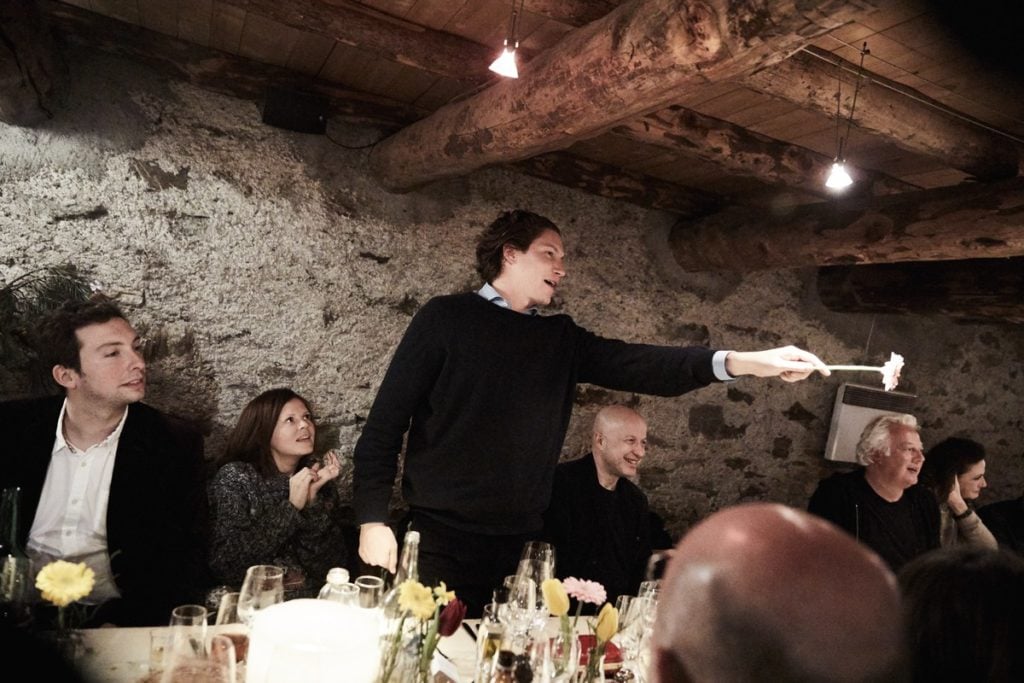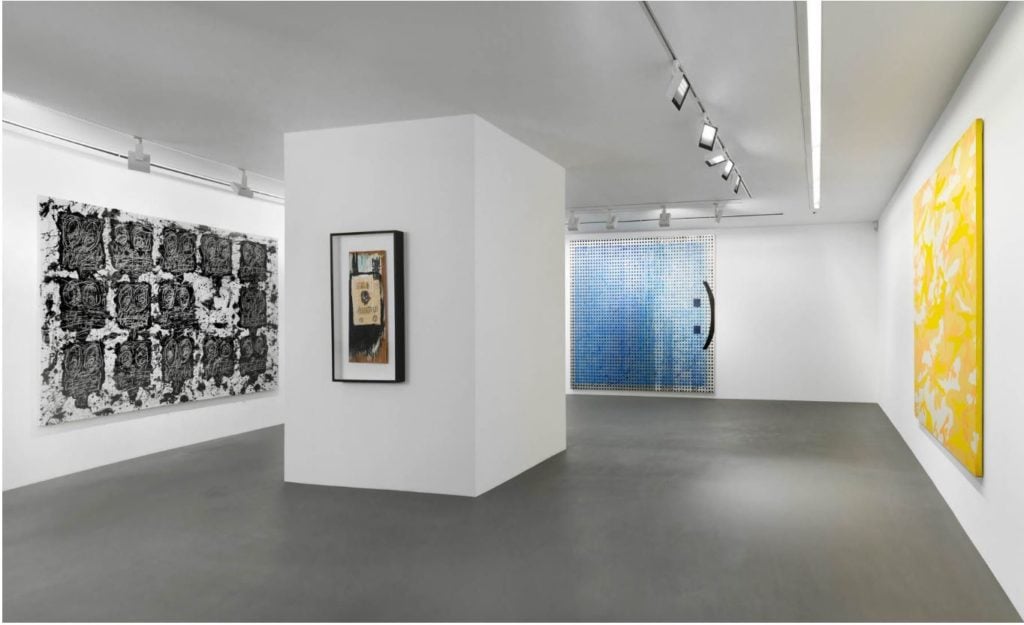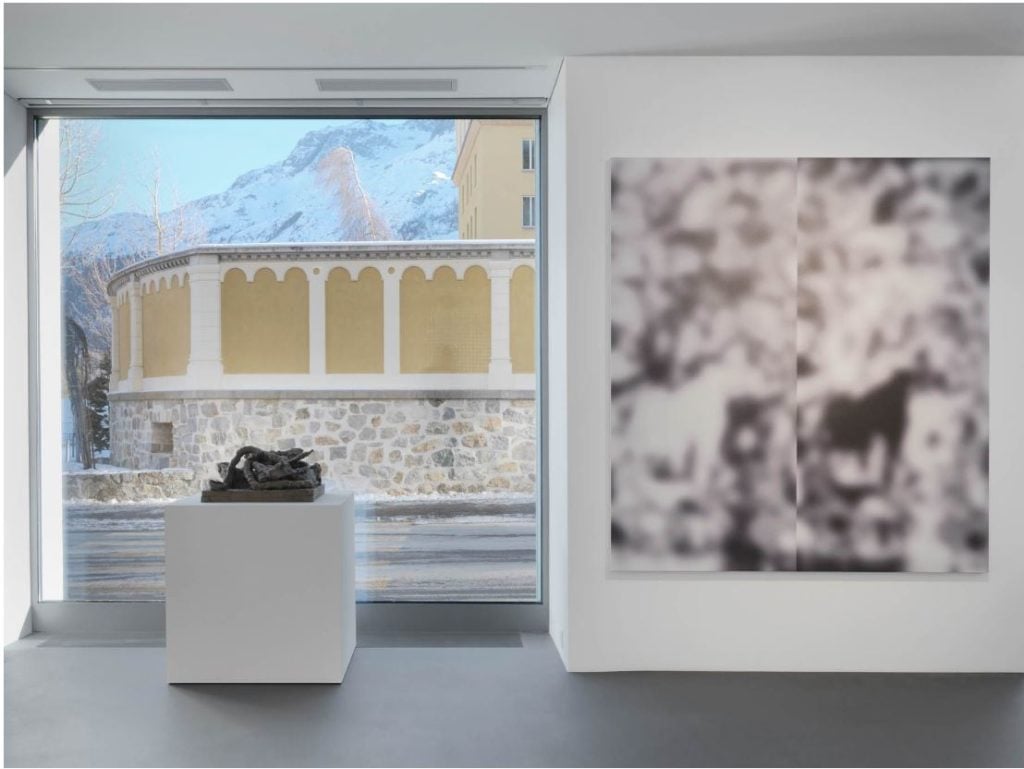On View
A-Listers Descend on Vito Schnabel Gallery for Show Curated by Bob Colacello
It amounted to an A-list party in the Swiss Alps.

It amounted to an A-list party in the Swiss Alps.

Eileen Kinsella

Writer Bob Colacello is likely best known for his Vanity Fair scribblings and his bestselling book Holy Terror, which chronicles his 1980s adventures with Andy Warhol and his time as editor of Interview magazine.

Vito Schnabel giving a toast at the opening dinner for a show curated by Bob Colacello.
Photo by Micha Freutel/Torvioll Jashari. Courtesy Vito Schnabel Gallery, St. Moritz.
Now he has added a new title to his repertoire—curator. A just-opened show (January 29–March 5) at Vito Schnabel’s St. Moritz gallery was an A-list affair on opening night with top collectors, including Aby Rosen, Stavros Niarchos, Alberto Mugrabi and his new wife Colby, Dasha Zhukova, and Doris Ammann in attendance, according to reports and pictures in Vanity Fair and Page Six. Both Schnabel and his father Julian were in attendance for the opening dinner soiree in the Swiss Alps.
Asked about his first experience as a curator, Colacello told artnet News via email I’m “thrilled with the overwhelmingly positive response from both important European museum curators and my American friends who flew over for the opening. I’m super grateful to Vito for launching me on a new creative adventure in my 7th decade. More to come.”

Installation view “The Age of Ambiguity.” © Rashid Johnson, Courtesy the Artist and David Kordansky Gallery, Los Angeles; © The Estate of Jean-Michel Basquiat, Private Collection, Florida; © Jacqueline Humphries, Courtesy the Artist and Greene Naftali, New York; © 2017 The Andy Warhol Foundation for the Visual Arts, Inc. / Artists Rights Society (ARS), New York, Private Collection. Image Courtesy Vito Schnabel Gallery. Photographer: Stefan Altenburger.
The show is titled “The Age of Ambiguity: Abstract Figuration/Figurative Abstraction,” and it features a diverse range of work by artists including Warhol, Jean-Michel Basquiat, The Bruce High Quality Foundation, Jeff Elrod, Jacqueline Humphries, Rashid Johnson, Jeff Koons, Adam McEwen, Sterling Ruby, Borna Sammak, Julian Schnabel, and Jonas Wood.

Installation view “The Age of Ambiguity”. : © Sterling Ruby, Courtesy Sterling Ruby Studio and Vito Schnabel Gallery; © Jeff Elrod, Courtesy the Artist, Luhring Augustine, New York, and Vito Schnabel Gallery. Image Courtesy Vito Schnabel Gallery. Photographer: Stefan Altenburger.
“As the 21st century grapples its way through its second decade, America seems to have entered what may be called ‘The Age of Ambiguity,’ a time when everything is fluid and nothing concrete, and confusion overwhelms certainty,” wrote Colacello in a statement about the show. “It is said that the best artists are the antennae of their society, the prophets of their era.” Colacello concluded that many younger artists have “abandoned the bygone absolutisms of Minimalism on one hand and Hyper-Realism on the other.”